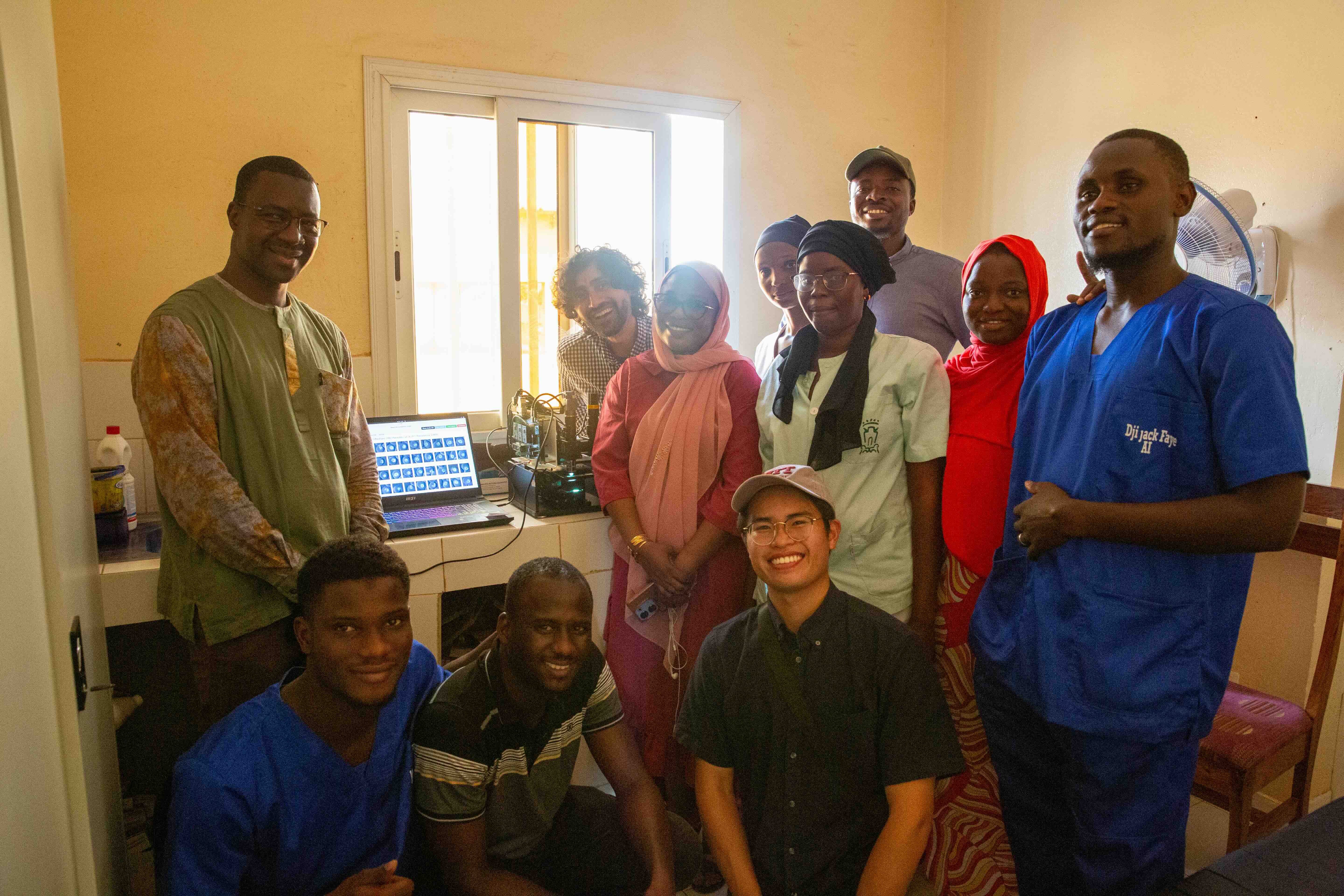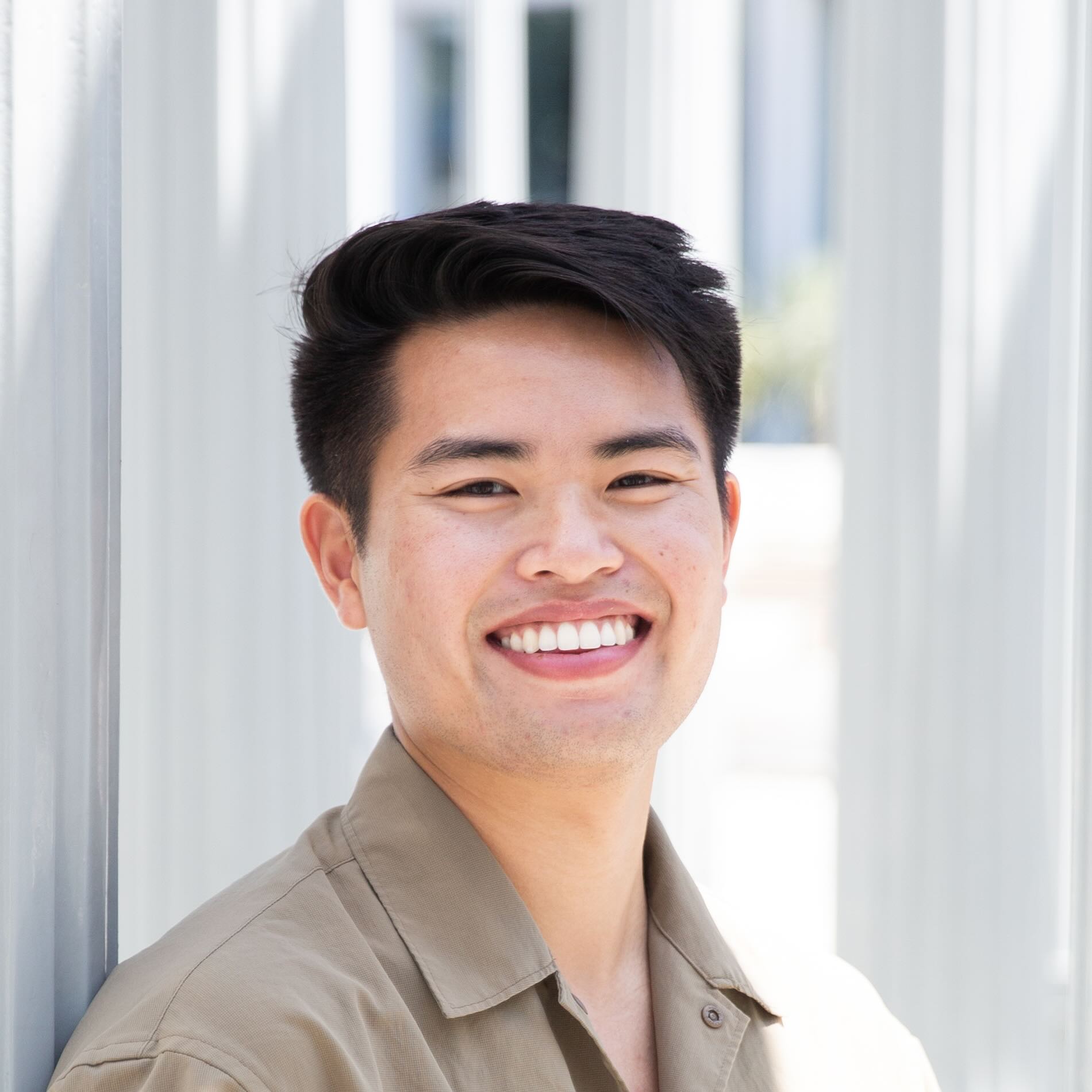Make the most of your rotations
August 16th, 2025 | 5 min read

Rotation #1 (Fall 2024): I traveled to Senegal with Manu Prakash to continue our collaboration with the Institut Pasteur. We visisted over 8 primary health centers, demonstrating an automated microscopy system to help doctors screen for malaria parasites.
While applying to grad school, you probably made a ranked list of labs you want to join. Now that you’ve been admitted to the program, it’s time to narrow in on the lab you will join.1 How right are you about your original list? There’s a high chance you’re wrong.
Near the end of the first year, admin asked my cohort, “How many of you are committing to a lab different from the one you initially intended when you applied to Stanford?”
Almost every single hand went up.
What does this mean? Does it mean that PhD students are indecisive? Does it mean they don’t know what they want? Does it mean that you actually shouldn’t ever meet your heroes?
To me, it looks like a successful outcome for rotations whichever way you look at it. If you end up taking another path, it means the rotations were worthwhile. If you continue the same path you intended, that doesn’t necessarily mean rotations were a waste of time either.
What you do during a rotation isn’t as important as how you think about the rotation experience.2
Exploitation vs exploration
Making the most of your rotations can be boiled down to a classic type of problem: “exploitation vs exploration”. In these types of problems, which can be found in domains of machine learning and evolutionary ecology, you must decide whether you’ll double down on the advantages you currently have (exploit) or spend time/resources to wander into uncharted areas hedging on the possibility you end up in a better place. Consider a more concrete example: you’re at a party — should you spend time finding new friends (explore) or hanging out with friends you already know you like (exploit). Likewise, when you commit to a lab earlier by forgoing rotations, you adopt the “exploit” strategy and reap the benefits of any time saved. Hence, rotations are “exploratory” by their very nature.
Rotation #2 (Winter 2025): With the Soh Lab, I programmed an Opentrons machine to automate a biochemical screening protocol that would have taken 7 hours of manual labor.
Given that rotations are exploratory, we reframe the problem at hand: “should you explore or exploit?” The answer to this classic problem depends on the following considerations:
- How much time/energy you have: As an incoming first year PhD student, you have your whole scientific career ahead of you. That’s like 40+ years of career, regardless of whether you go into industry or academia. It’s best to spend a year exploring. You won’t really ever get this much freedom again.
- What potential opportunities are abound: If you know what type of research you want to do, and there aren’t any other labs that pursue that line of questioning, then it will narrow down any type of exploration available to you. But then again, how exactly sure are you about your own research interests?
- How happy you are with what you’ve found so far: If you dislike the lab you’ve rotated with so far, continue the exploring. If you do like a lab you’ve rotated in so far, it can make you less inclined to continue rotations. But for reasons that will be discussed in the next section, you should probably still rotate.
Let the exploration begin
So rotations are explorative, and exploration is what you should do in your first year. Nice. But how should one “explore”? More specifically, what forms of self-discovery are available to students only during that period of time they are rotating?
First off, never treat “exploration” as an aimless wander. It shouldn’t just be “getting the vibes” of a lab. You should be absorbing every little opportunity whether you think it’s important or not. Explore alternative trajectories you wouldn’t have otherwise. Consider yourself a biologist? Learn some electronics! Never pipetted before in your life? Now’s the time! When I see folks labeling themselves as “computational people,” vowing never to mix two chemicals together, I can only imagine the experiences they’re depriving themselves of. Plus, when other than the first few years of grad school do you get to treat science as a playground with almost zero obligations to publish?3 Don’t be afraid to break past the surface of things — go ahead and dive into the weeds of things. I promise you, it’s not a waste of time, even if you don’t end up doing it long term.4
Open as many doors as possible without stressing over which one you’ll eventually walk through.
This exploration isn’t just about learning technical concepts either — it’s also about connecting with new people. Imagine yourself in the future once you’ve committed to a lab. You’ll probably walk the exact same path to lab at the same time every day. You’d never bump into the inspiring scientists in the buildings next door or learn about the rich history of your campus. What a shame it’d be if you spent more than 5 years at a place without ever knowing _. Don’t confine yourself to a single lab environment when you have a whole campus community to draw inspiration and ideas from.
Rotation #3 (Spring 2025): Dived into the field of complex systems and active matter with Prof. Sho Takatori. In this video, we observed nematic ordering (see how a segment of bacteria are all aligned?) in a population of E. coli.
When it comes to rotations, stop trying to identify the best advisor. You’ll end up doing that one way or another. Instead, focus on assembling a team of mentors that will guide you through your graduate studies and serve you much better in the long run. You’ll have access to more perspectives, mentors who can pass opportunities your way, and letter writers who can vouch for you. And like it or not, science is an enterprise comprised of people, and “networking” is crucial Just because your PI will be your main mentor doesn’t mean they have to be your only mentor.
These past few paragraphs echo the same sentiment. Rotations are explorative — don’t waste time locking yourself into one thing, whether that “thing” is a technical skill set, a group of peers, or a PI. I know it’s easy to get caught up in the irrational fear that “my peers are getting ahead of me while I’m stuck in this ill-defined limbo of rotations.” But I’m telling you that if you rush this process, the only person you’ll get ahead of is yourself. So if your graduate program offers rotations, you’d be doing yourself a big favor by embracing this exploration with open arms.
-
Or labs (plural) if you are doing some sort of co-advising situation. ↩
-
So if you want a concrete list of questions you should ask an advisor or specific tasks you should check off during a rotation, this blog is not it. ↩
-
The pressure to publish may shift as you progress through your degree, but this pressure is at an absolute minimum in the first few years! ↩
-
Hindsight bias. ↩
